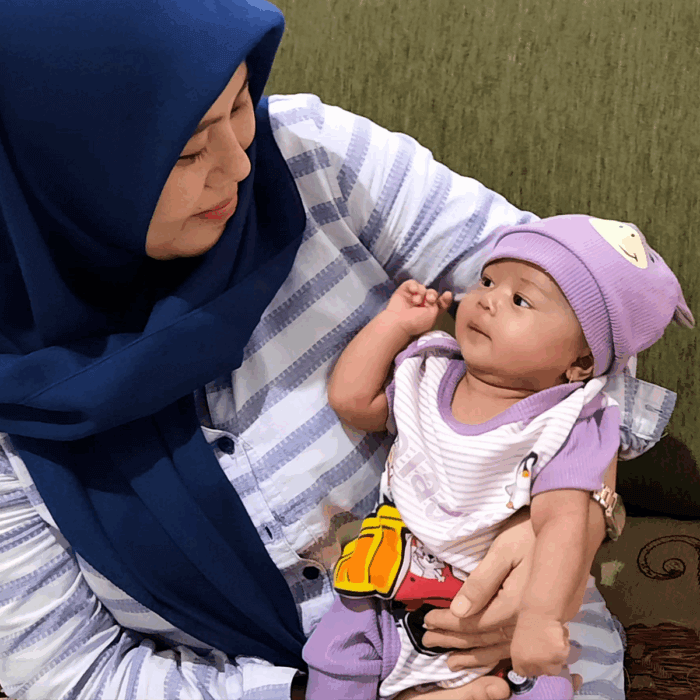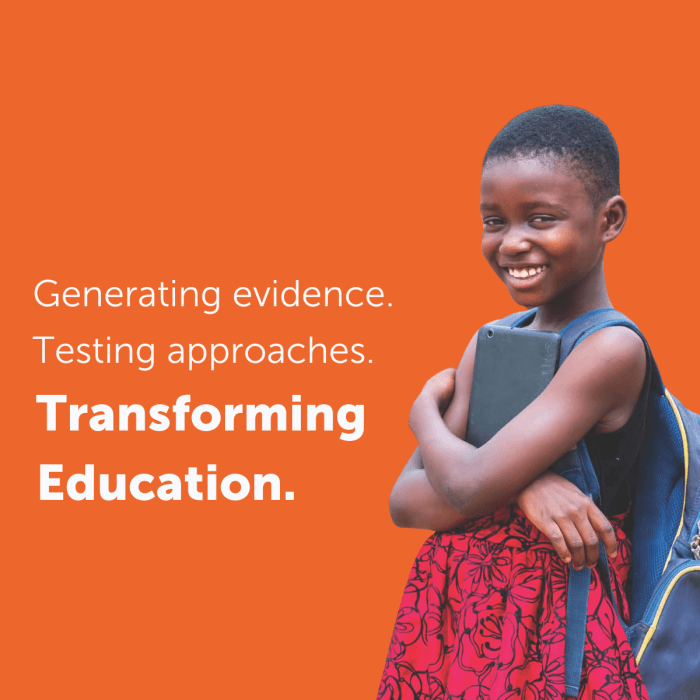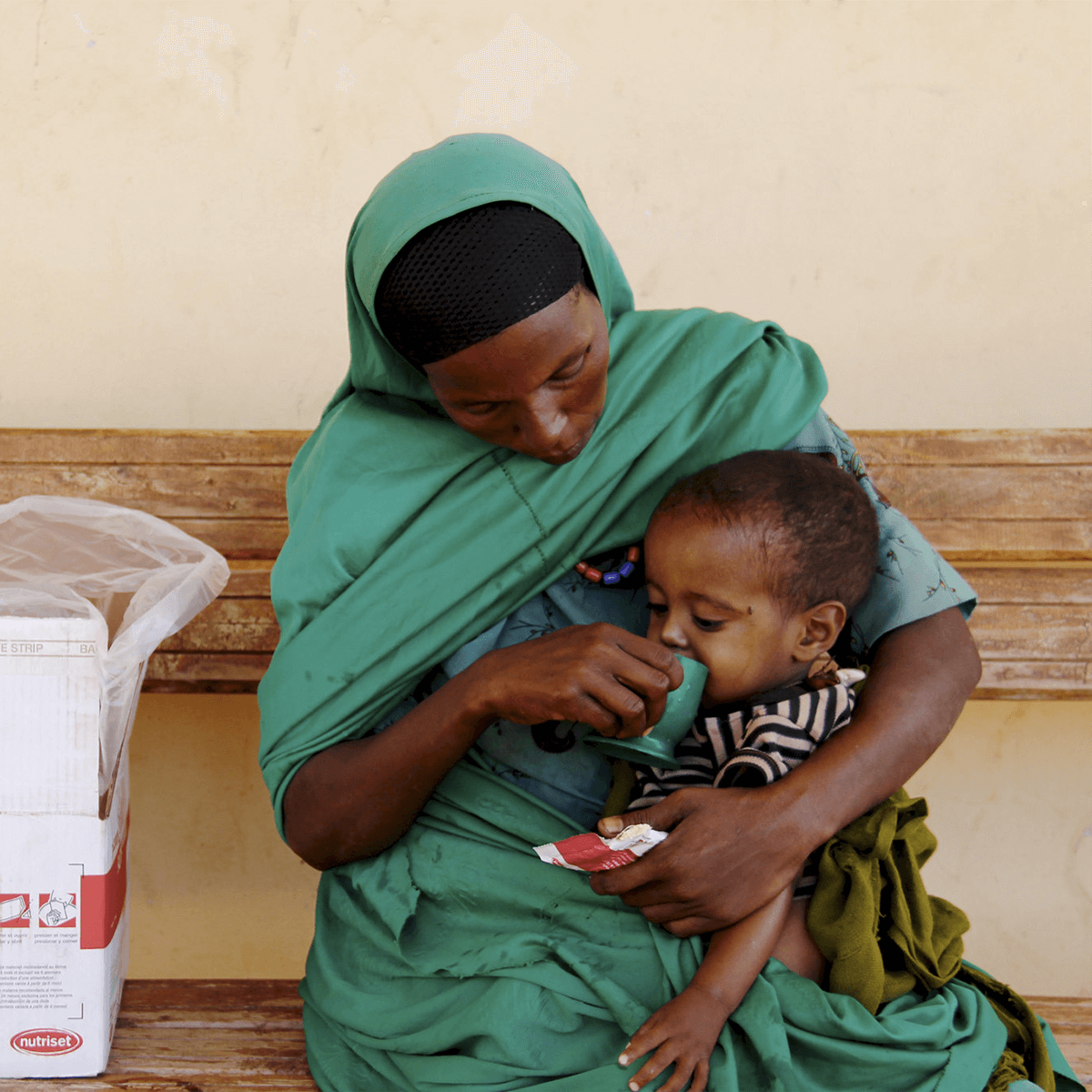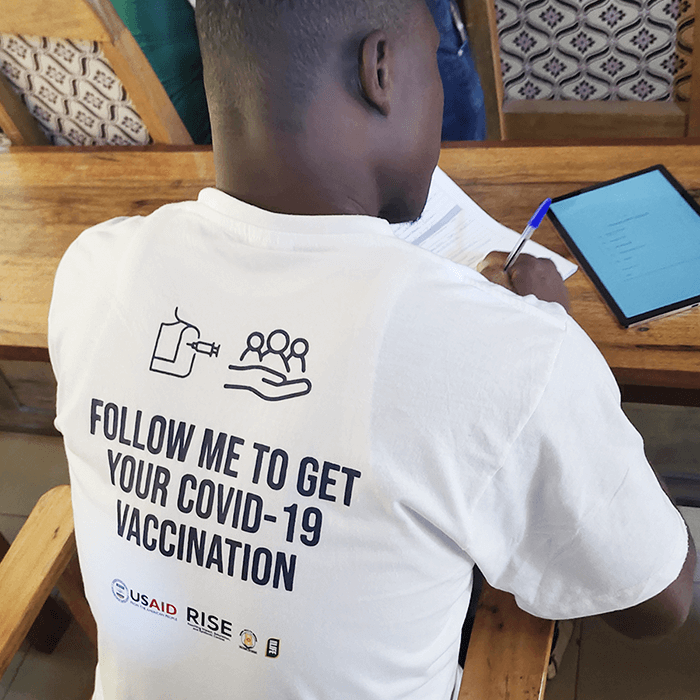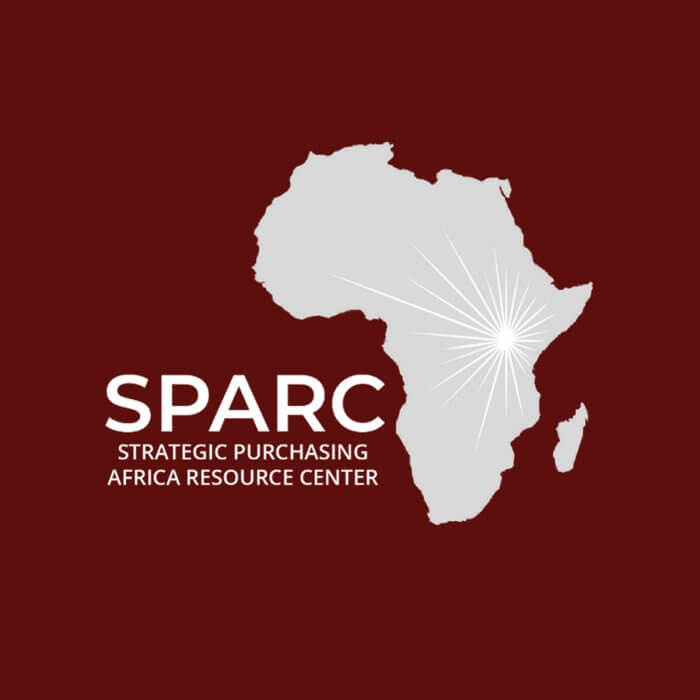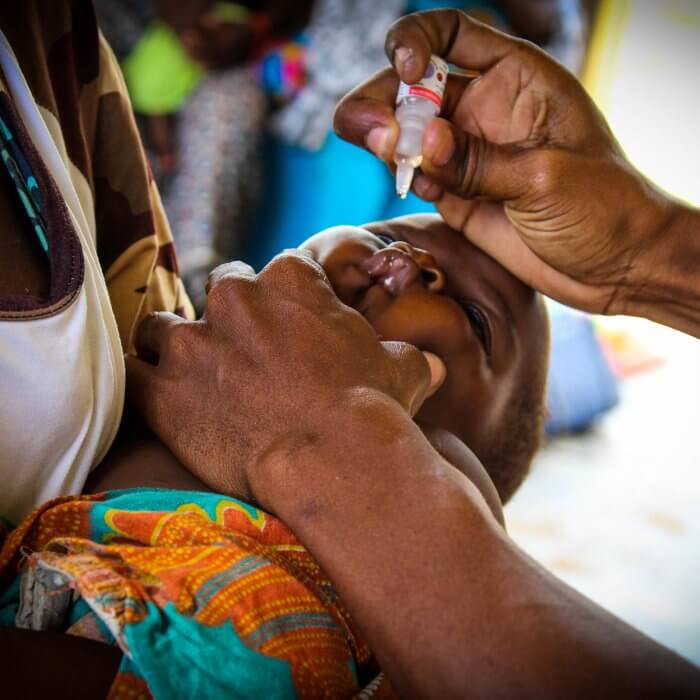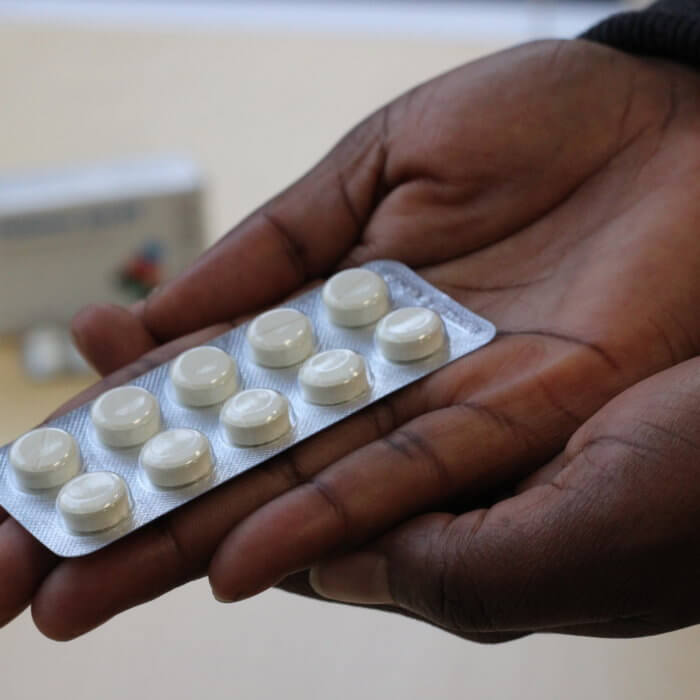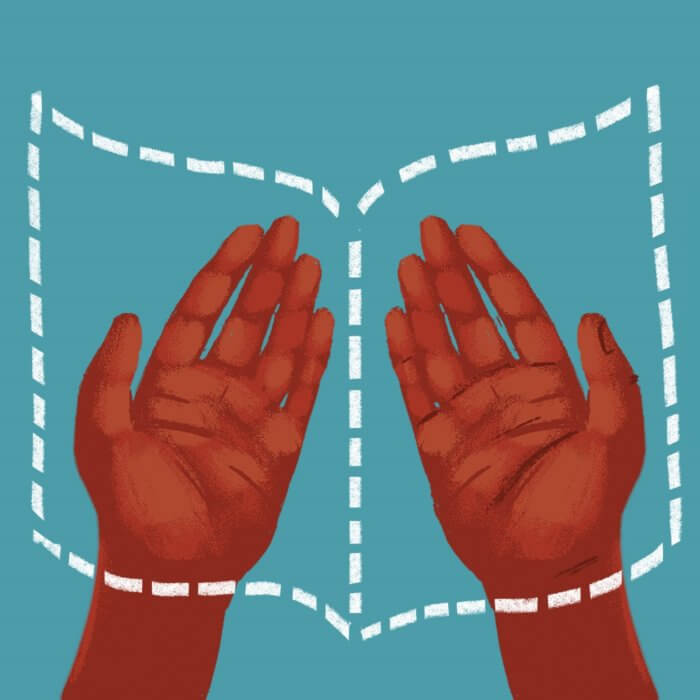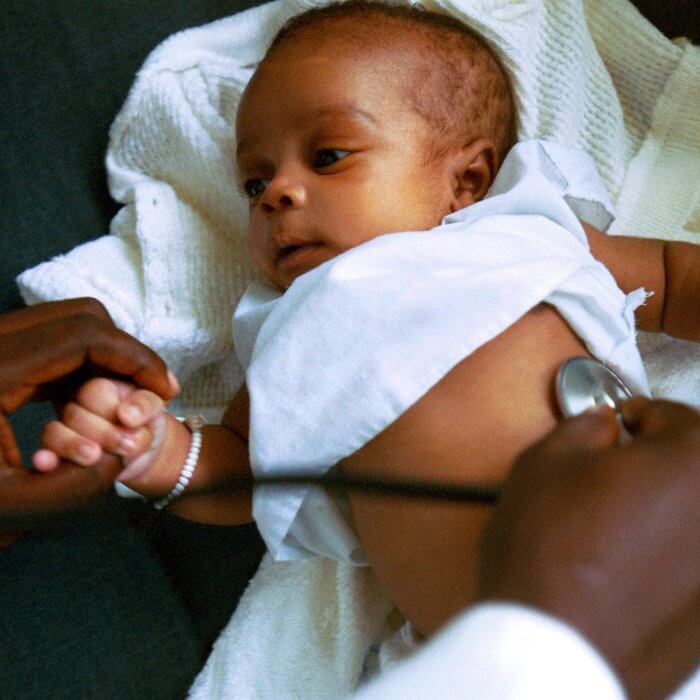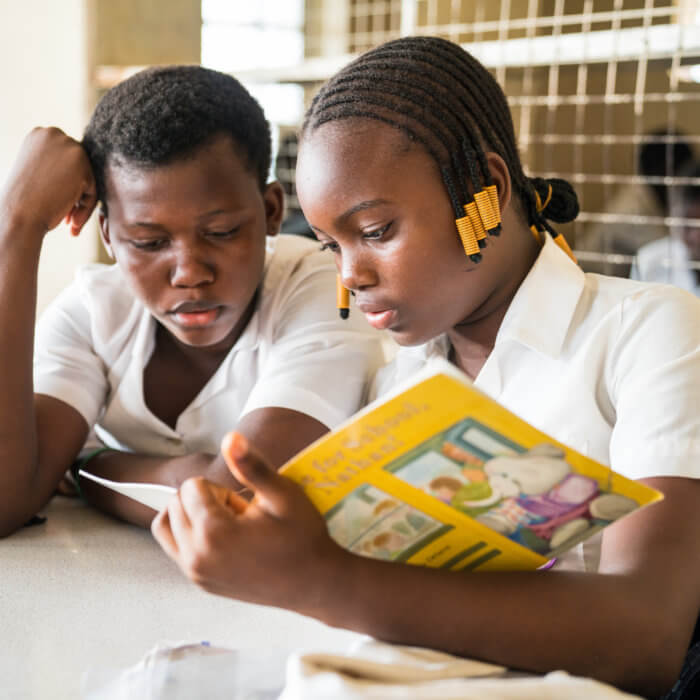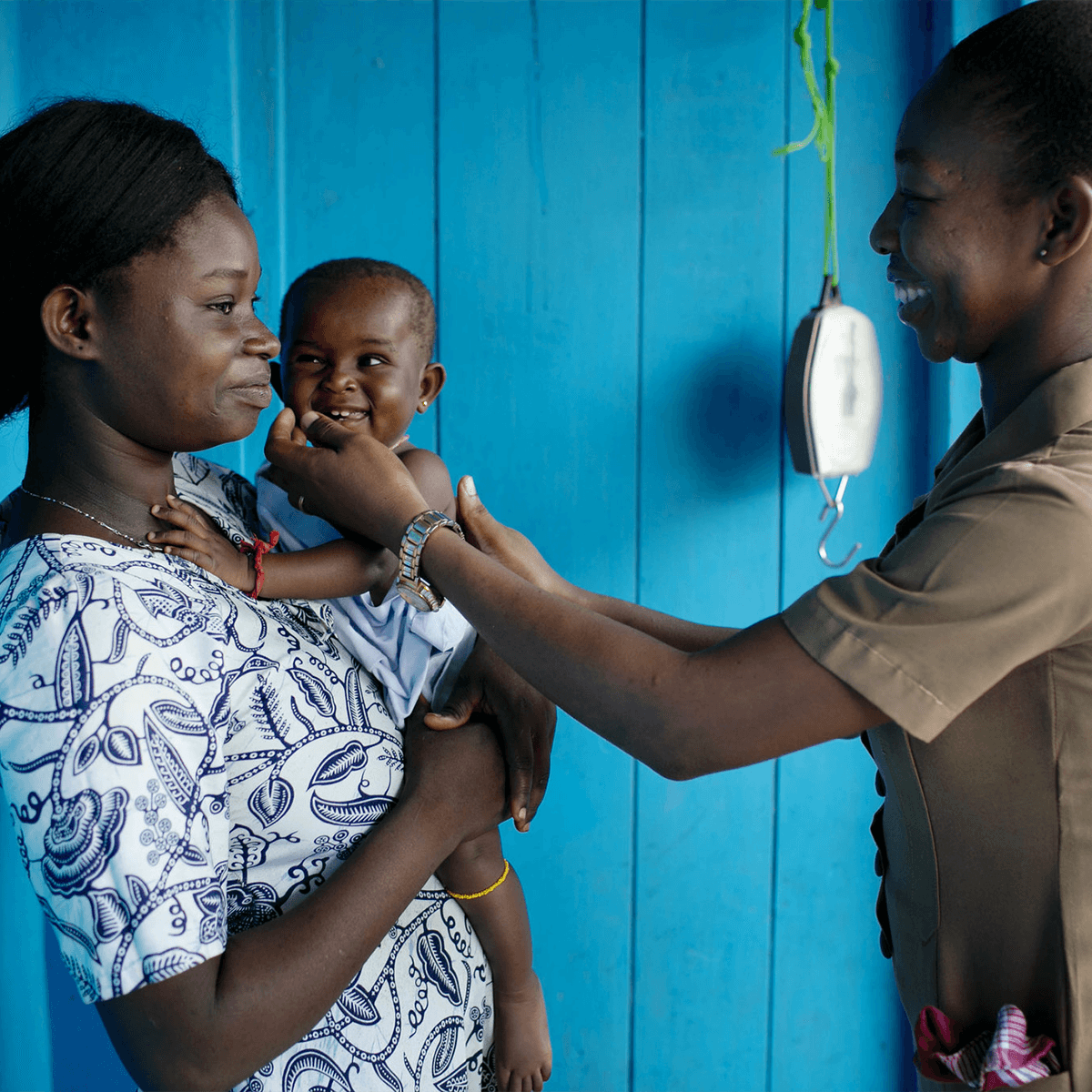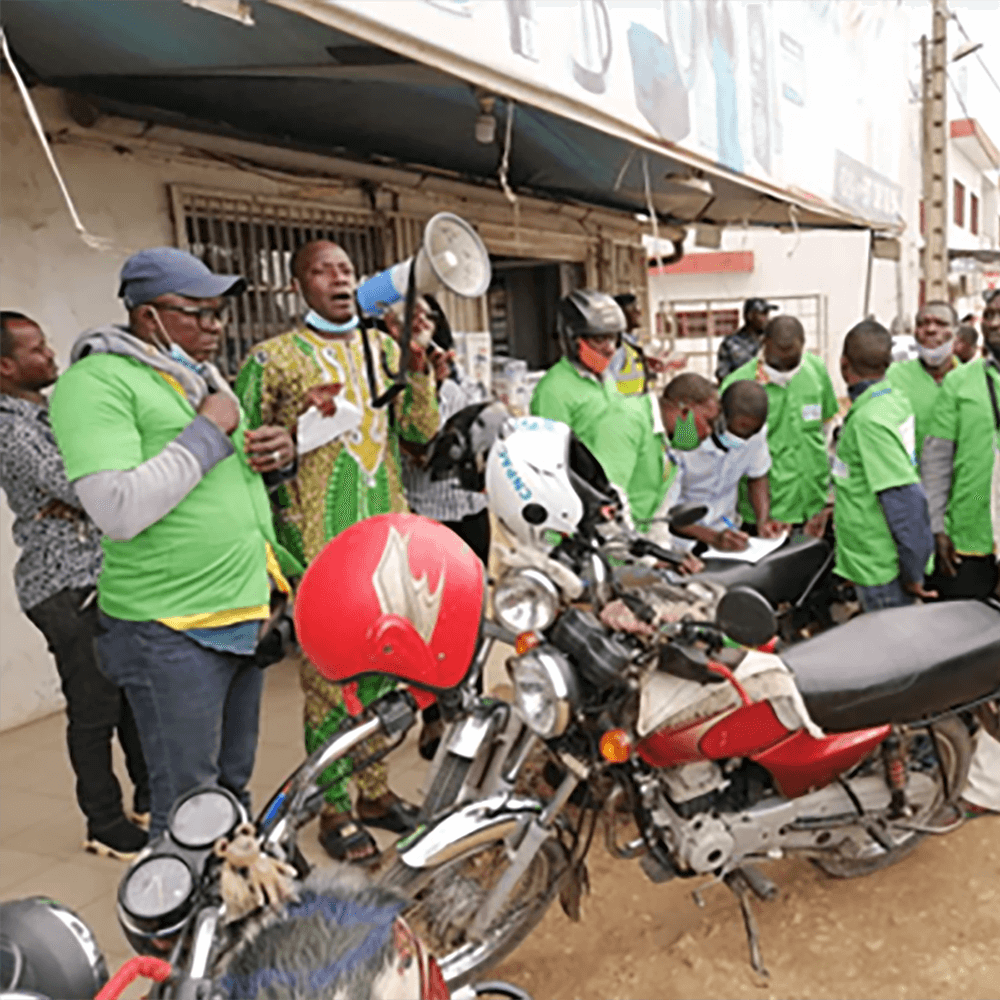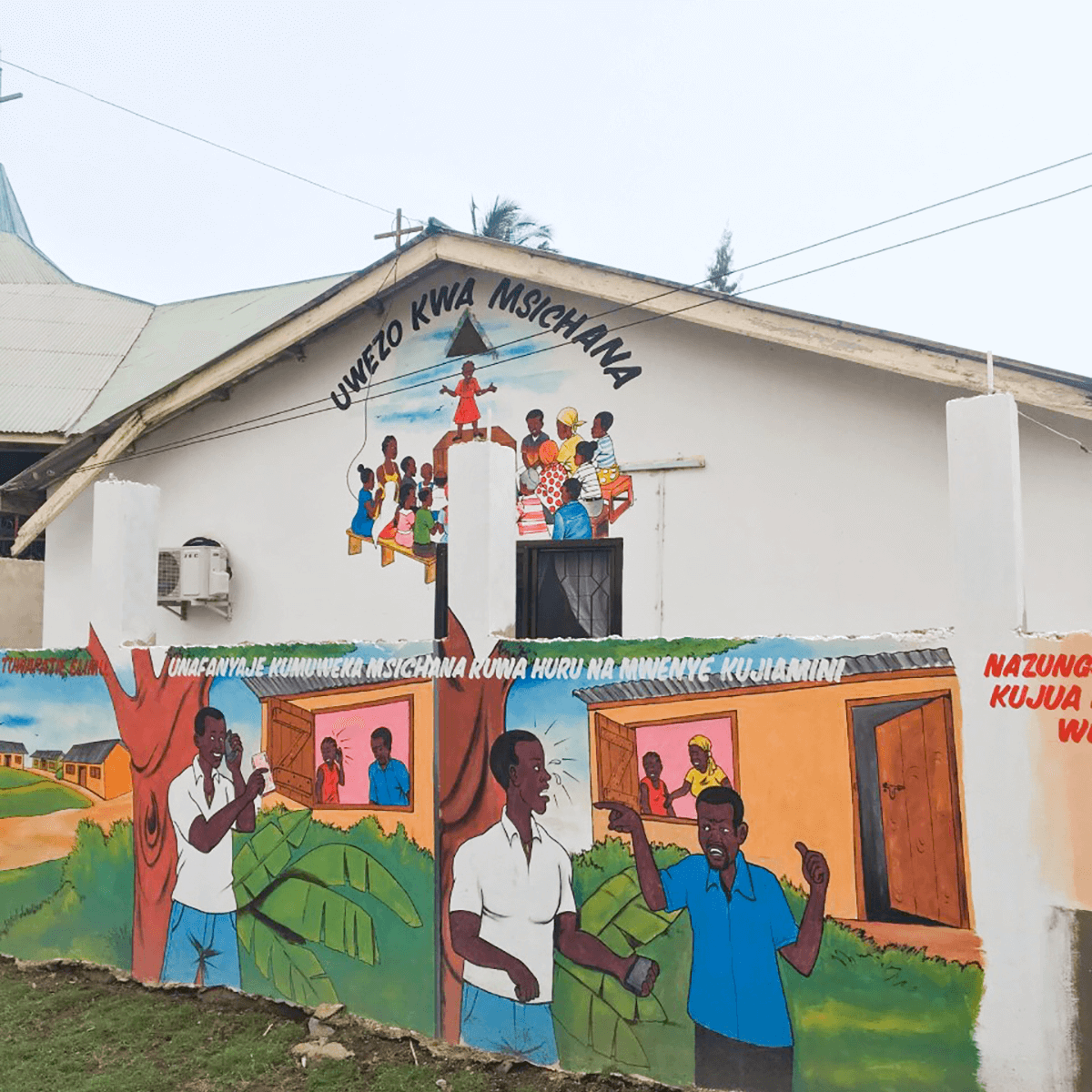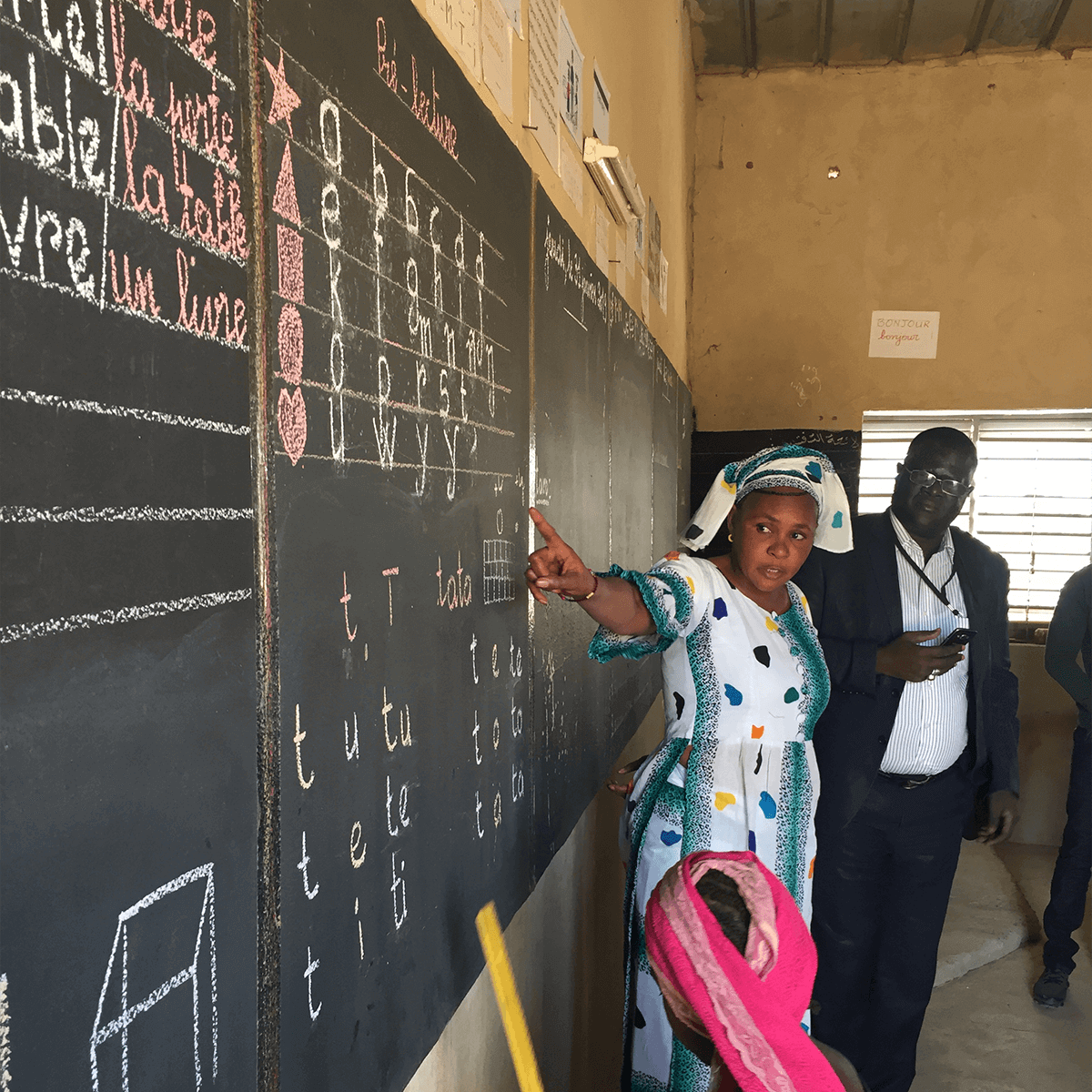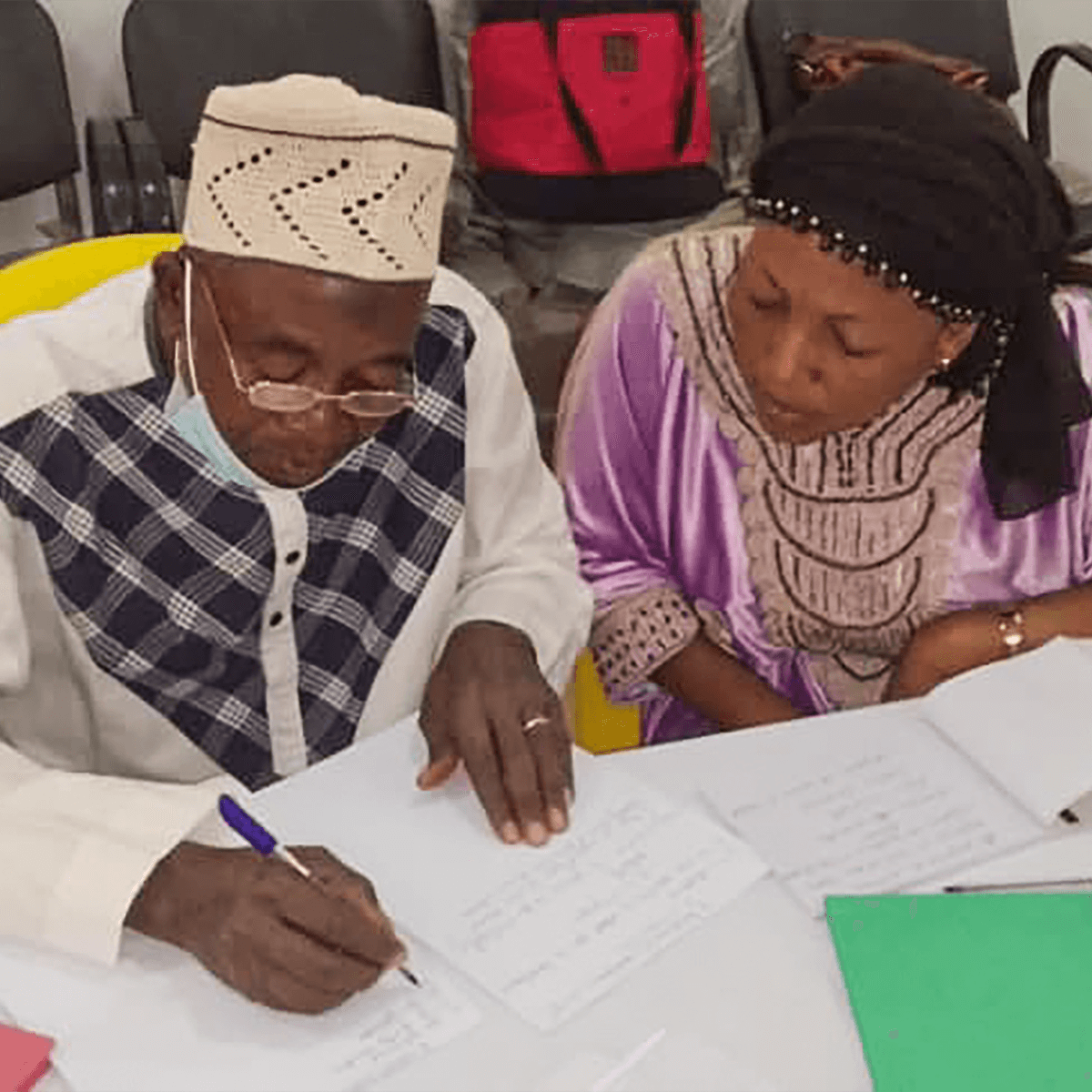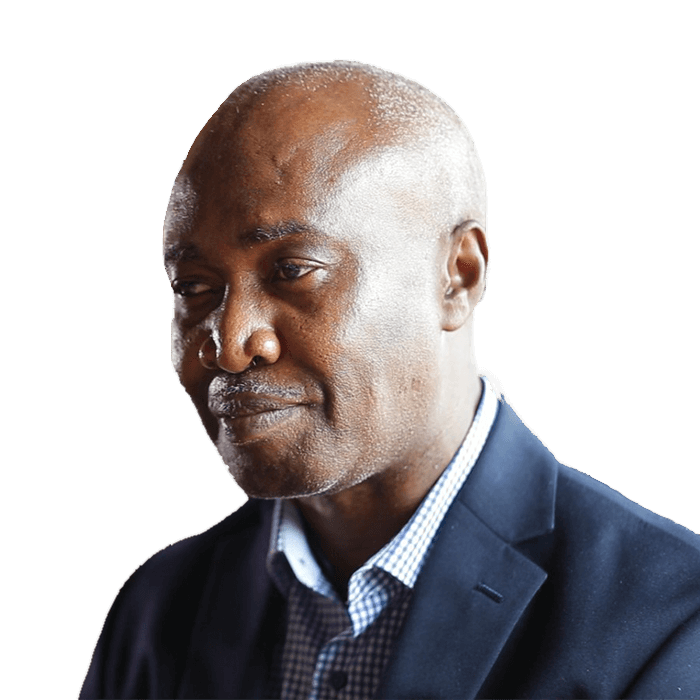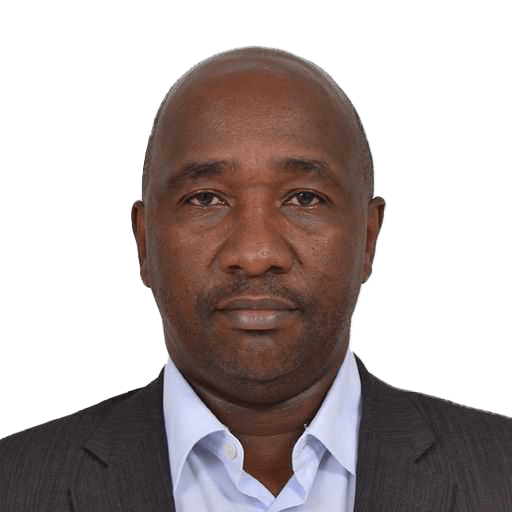10 years of UHC in Ghana
For 10 years, R4D has provided continuous, responsive support to Ghanaian leaders as they sought to expand access to quality health care. R4D has worked alongside various government agencies to solve multiple interwoven challenges and strengthen the whole system over time. R4D has provided continuous support — connecting the dots across various projects to address different aspects of universal health coverage, from financing to service delivery to pandemic response. Currently, R4D is supporting the government of Ghana to nationally scale up an innovative network-based approach to primary care after piloting it from 2017 to 2019 in the Volta Region. The pilot showed documented improvements in the quality of maternal and child health services and patient satisfaction, in addition to increased clinical support and exchange of skills, knowledge, and logistics among network providers. This work is improving health care for 12 million people.
Improving health equity in Benin
When Benin launched a national health insurance program with a goal of improving health services for 1 million people living in poverty, early enrollment in the program was low. To address this, R4D and local partner Centre de Recherche en Reproduction Humaine et en Démographie (CERRHUD) created a multi-stakeholder committee to provide input on the program. R4D also conducted an evaluation of the program’s pilot. The committee, which included previously unheard voices, reviewed the findings and made recommendations to develop a more community-based approach. This has led to major changes in the program, and R4D is now supporting its rollout in 56 of the country’s 77 districts. The committee still meets regularly and has become a model for other forums where people share their perspectives and feel heard. R4D’s work in Benin was launched under the USAID-funded African Collaborative for Health Financing Solutions and continues now under the USAID-funded Health Systems Strengthening Accelerator.
Supporting ECD leaders to learn and adapt
Many of the 10.5 million children under the age of 5 in Tanzania are not reaching their full potential due to a lack of early childhood development (ECD) services. Several local organizations are working hard to address this challenge, but they need additional support. To address this, Results for Development worked with three ECD organizations to strengthen their ability to monitor and improve their programs. Over a period of 2 years, R4D worked alongside colleagues at Amani Girls Home, Tumaini Letu, and TAHEA to understand their priorities, and provide them with tools and approaches to continually assess the impact of their programs, adapt, and better serve target communities. At the end of the engagement, the organizations said the process had been valuable. They all took steps to integrate learnings and improve programming. They also noted the long-term benefits, and planned to incorporate new methods into their program management structures.
Combating severe acute malnutrition
Globally, 45 million children experience wasting — the deadliest form of malnutrition. Historically, treatment was delivered as an emergency program with limited scale and sustainability. Today, there is greater focus on integrating treatment into health systems to scale up and strengthen programming holistically. But more evidence is needed on how to do this effectively. To answer that call, R4D, UNICEF and country change agents jointly produced a process guide for governments on how to integrate child wasting services into routine primary care. Now, R4D is working alongside the Ministry of Health in Ethiopia to adapt and apply this global evidence — and develop an integration plan. Though severe acute malnutrition treatment is already being integrated in most health facilities through Ethiopia’s Health Extension Program, the wasting integration plan would help to expand services and increase efficiency as well as programmatic and financial sustainability. Read the full story here.
Improving classroom instruction in Senegal
One of the most effective ways to improve classroom instruction and learning outcomes is to provide instructional coaching for teachers. But it can be challenging to figure out what works — especially in a resource-constrained environment. To improve reading in Senegal, the Ministry of National Education introduced a program in 2017 to coach and support teachers, but the program was not consistently adhered to, and teacher practice did not improve. To figure out why, R4D supported the Ministry to rapidly test and iterate on different coaching approaches and subsequently supported a randomized control trial (RCT). Overall, teachers reported largely positive effects of coaching and two new models that were tested appeared to improve teacher practice more than the original approach. The evidence that was generated in Senegal is available for use by anyone who is designing a teaching coaching program.
Supporting community health in Guinea
Community health workers — who often travel household to household, providing solutions for common health problems — are critical frontline health workers. But they are often unpaid, under-paid, or paid sporadically. Since 2019, R4D has supported Guinea’s efforts to strengthen domestic financing of their national community health policy, the cornerstone of which is the recruitment and compensation of community health workers. As part of these efforts, R4D supported civil society organizations (CSOs) in Guinea as they advocated for the recruitment and payment of community health workers. R4D and local partner Comité Jeunes, Mon Avenir D’Abord, provided coaching, mentoring, and training for CSOs, enhancing their advocacy capacity. This included developing an advocacy strategy, crafting effective messaging, mobilizing media coverage, and providing guidance on engaging with the Ministry of Health, Ministry of Finance, Ministry of Territories and Decentralization, and the National Transitional Council. On December 9, 2022, Guinea’s National Transitional Council unanimously adopted a new law mandating that community health workers and mobilizers become paid government employees rather than volunteers. And government officials specifically credited CSO advocacy for contributing to the passage of the new law. The law is currently being disseminated at the subnational level, to increase awareness among local government officials of their responsibilities to pay and recruit community health workers. This work was done through the R4D-led Health Systems Strengthening Accelerator, a global program to increase people’s access to quality, affordable health care.

